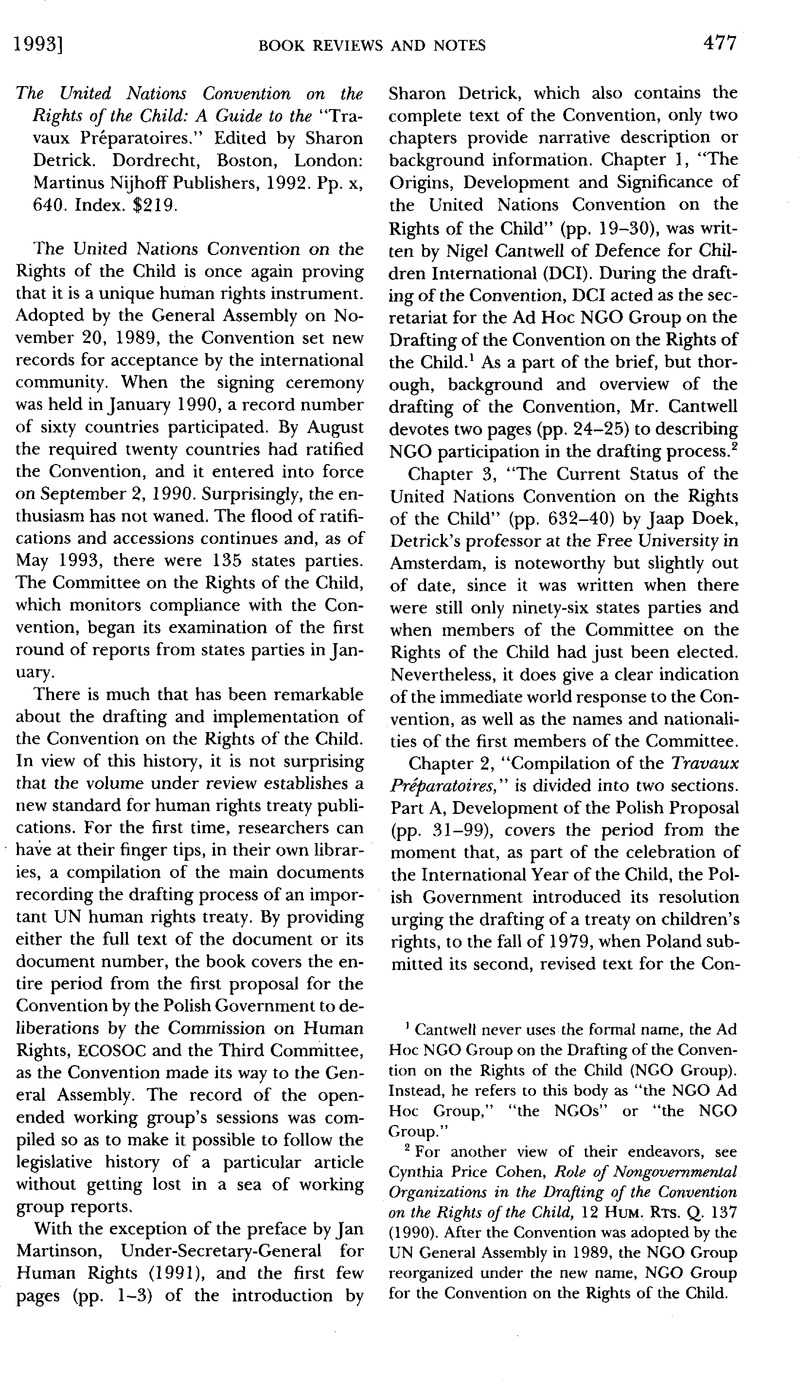Published online by Cambridge University Press: 27 February 2017

1 Cantwell never uses the formal name, the Ad Hoc NGO Group on the Drafting of the Convention on the Rights of the Child (NGO Group). Instead, he refers to this body as “the NGO Ad Hoc Group,” “the NGOs” or “the NGO Group.”
2 For another view of their endeavors, see Cynthia Price Cohen, Role of Nongovernmental Organizations in the Drafting of the Convention on the Rights of the Child, 12 Hum. Rts. Q. 137 (1990). After the Convention was adopted by the UN General Assembly in 1989, the NGO Group reorganized under the new name, NGO Group for the Convention on the Rights of the Child.
3 Each session of the working group generated some 30–80 working papers, most of which never became official UN Documents and were destroyed at the end of the session.
4 Because no consensus could be reached in the working group over financial considerations relating to the functioning of the Committee, these paragraphs went to the Third Committee in brackets, where the question whether the costs of the Committee’s activities must be borne solely by states parties or whether they should come out of the general budget was finally decided in favor of the latter.
5 Since the makeup of the Commission on Human Rights changed regularly, countries that were members of the Commission, and therefore “representatives” one year, would often participate as observers at another session. The list of observers includes NGOs and UN bodies, as well as governments.
6 Another confusing aspect of this ordering of articles is that the editor does not make clear the origins of the numbers that end in bis, ter, quater, and so forth. Detrick does not explain, and perhaps did not understand, that these designations linked those articles to the numbering of the Polish text and clarified their relationship to it.
7 This is because the second reading was linked to the 1989 session of the Commission on Human Rights. It was held earlier to enable the Centre for Human Rights to prepare the necessary documentation in time for the 1989 session.
8 It should be noted that another comprehensive UN publication about the Convention on the Rights of the Child should be available early next year. Edited by Philip Alston, this will be a commentary, developed under the auspices of Unicef, containing references to other human rights instruments as well as to the travaux préparatories.